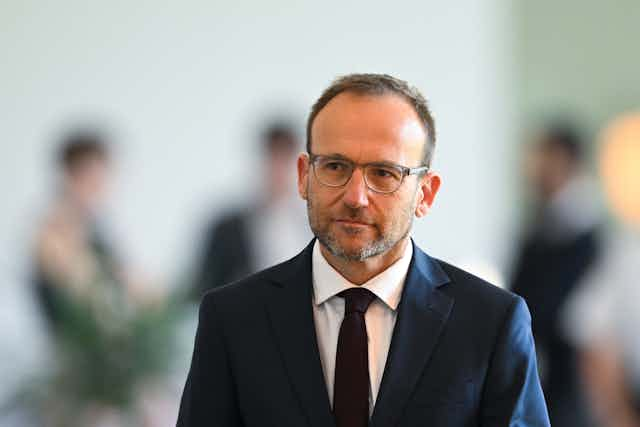Adam Bandt aspired to power-sharing with a Labor government. That was never going to happen but, possessing the major slice of the balance of power in the Senate, the Greens have considerable potential muscle – at least in theory.
In this podcast, we get a glimpse of the gap between Greens leader Adam Bandt’s aspiration for ambitious reforms and the reality that the government is only giving concessions at the edges to the minor party.
“There’s a capacity for this to be a golden era of reform in this parliament,” Bandt says.
“For us to pass laws that tackle the climate crisis and to protect the environment. That tackle the cost of living crisis.
"At the moment, the only obstacle is Labor’s willingness to do what needs to be done, and that would in fact be very popular,” he says.
“I think what we’re going to see during this parliament is the Liberals become a far-right irrelevance. Labor becomes a centre-right party, but it’s still wedded to neo-liberal economics. And the Greens are advancing the social democratic alternative.
"I understand the government wants to project that they are in majority and that everything is within their control […] At some point the penny needs to drop with the government that they will have to work with others if they want to not only get their agenda through but tackle the problems that people are facing.”
Bandt discusses the Greens’ attempt, rejected by Labor, to force a ban on new coal and gas projects, and their reservations about the government’s national reconstruction and housing funds.
Interestingly, he dodges when quizzed on the action of his former colleague, now crossbencher, Lidia Thorpe in briefly disrupting the weekend Mardi Gras march.
“Lidia Thorpe is able to speak for herself. I’m not going to pass comment on that. Ultimately this is an event that is by and for the LGBTIQ+ community. I’ll leave it up to them and the organisers and those who are involved to to comment on that.”

